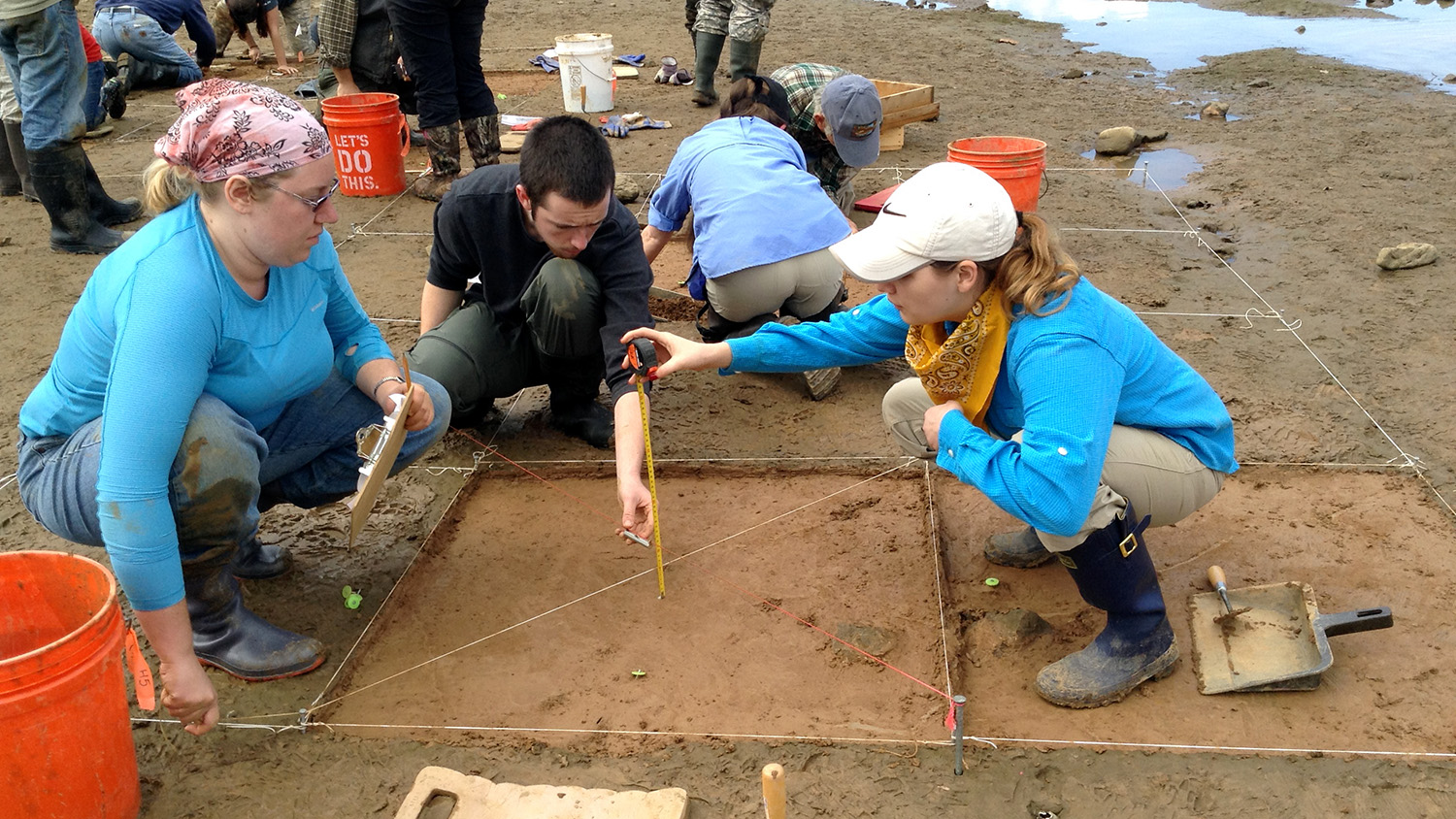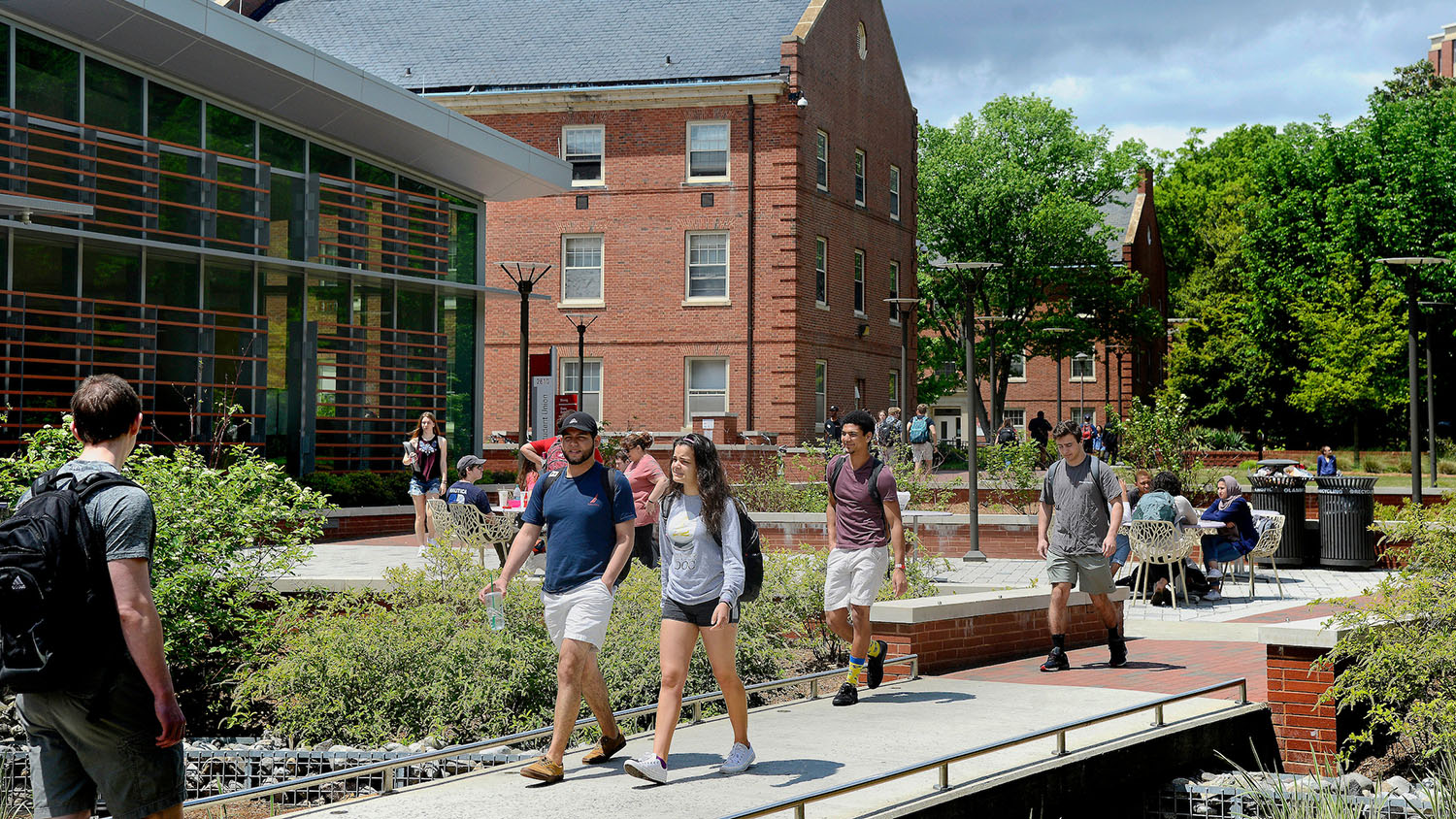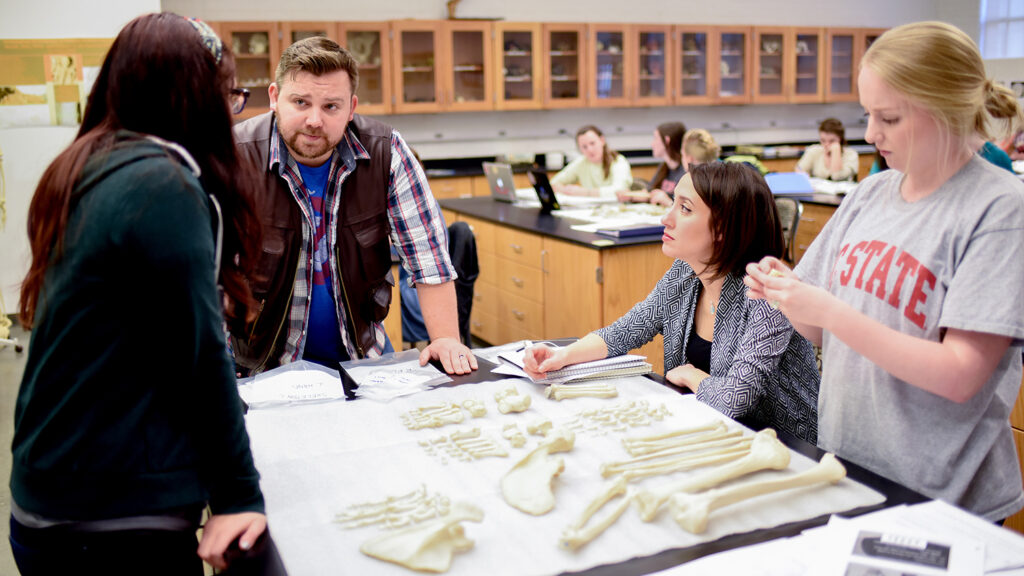Program Overview
The Master of Arts in Anthropology is a 30-hour, two-year graduate program, with specializations in archaeology, biological anthropology and cultural anthropology.
Since we began offering the degree in 2007, our students have distinguished themselves by conducting original research projects, presenting their findings at regional and national conferences and publishing their scholarly work as co-authors with program faculty.
Our faculty conduct research across the globe in archaeology, biological anthropology and cultural anthropology, and have created opportunities for students to become involved in ongoing studies.

Contact Us
Virtual Information Sessions
We typically offer two Zoom Information Sessions and Q&As in November and December.
- November 12 at 12:00 PM: Information Session, Register Here!
- December 4 at 2:00 PM: Information Session, Register Here!
Please fill out our interest form if you would like to receive future information session invitations or program updates. We look forward to meeting you!
If you are interested in setting up an individual meeting with a current faculty member, or have any general questions, please feel free to contact the Graduate Academic Advising Coordinator, Shayna Baker, at sebaker7@ncsu.edu or the Graduate Program Director, Dr. John Millhauser.
Contact Us
John Millhauser
Director of Graduate Program in Anthropology
Email: millhauser@ncsu.edu
Phone: 919-513-0284
Office: 1911 Building, Room 221
Shayna Baker
Graduate Academic Advising Coordinator
Email: sebaker7@ncsu.edu
Office: 1911 Building, Room 333A
Explore m.a. specializations
Program Specializations
We offer three specializations for the M.A. in Anthropology: Archaeology, Biological Anthropology and Cultural Anthropology.
Students may pursue a stand-alone degree in anthropology or a dual-degree (for example, with the Masters of Arts in Teaching).
Students may also combine their anthropology degree with a concentration in related disciplines on campus.
Accomplished Alumni

Degree Requirements
The M.A, in Anthropology is a 30-hour program that consists of the following core course for all students:
- Introduction to Graduate Studies in Anthropology (ANT501, 3 hours)
- Overview of Anthropological Theory (ANT511, 3 hours)
Additional core courses for each area of specialization include:
- Archaeology: Theories of Archaeological Research (ANT 583, 3 hours)
- Biological Anthropology: Human Osteology (ANT 521, 3 hours),Theories of Archaeological Research (ANT 583, 3 hours), and Statistical Methods for Research (ST 511, 3 hours)
- Cultural Anthropology: Research Methods in Cultural Anthropology (ANT 516, 3 hours)
In addition to these core courses, students take:
- 6 hours of ANT 630 to complete their thesis or capstone project
- 15 hours of electives related to their interests
The following panels list courses that students can take to fulfill the M.A. requirements:
Biological Anthropology Courses
- Archaeological Method and Theory
- Bioarcheology
- Human Osteology
- Paleopathology
- Skeletal Biology
- Advised Electives within or outside Anthropology (e.g. anatomy, taphonomy, etc.)
- Biological Statistics
Cultural Anthropology Courses
- Anthropology of Ecotourism and Heritage Conservation
- Anthropology of Religion
- Applied Anthropology
- Cultural Resource Management
- Culture, Ecology, and Sustainability
- Tourism, Culture, and Anthropology
- Urban Anthropology
- Advised Electives in Cultural Anthropology
- Advised Electives within or outside Anthropology
- Foreign Language (at the discretion of the advisor)Masters Research
Archaeology Courses
- Bioarchaeology
- Cultural Resource Management
- Environmental Archaeology
- Human Osteology
- Geospatial Information Science (GIS)
- Southeastern Archaeology
- Statistics
- Zooarchaeology
How to Apply
Each year, we receive an average of 40 applications for our fall admissions and admit an average of six students.
Prospective students apply through the NC State Graduate School. Completed applications include transcripts, letters of recommendation, a personal statement and a writing sample. A CV is optional but encouraged. We do not require the GRE.
Application Deadline
The deadline for fall admissions is Jan. 15, with all supporting material so that the review committee can begin the review process in mid-January. Our program accepts full- and part-time students to begin their studies during the fall semester. We do not accept applications for spring admissions.
Application Requirements
Completed applications must include the following:
- Transcripts: You will need to upload unofficial transcripts of all your academic course work since high school, including each institution of higher education you have attended. You will only need to send official transcripts to the Graduate School if you are admitted. Do not send transcripts to the Graduate Program in Anthropology.
- Letters of Recommendation: We require at least three recommendations. The Graduate School application packet includes a form for your references to use. This form only has a small space for comments. Please ask your references to add a letter in which they provide more detail. Specifics about their experience with you are particularly informative. If you are not currently in school, please take care in selecting the people to write these letters. We need to know how you are likely to perform in an academic setting.
- Personal Statement: This is usually a relatively brief statement of about two pages. We are especially interested to know how graduate training in anthropology fits into your intellectual and professional goals and plans. Please indicate in your statement which of our program specializations you are most interested in and why.
- Writing Sample: We pay very careful attention to the example of your writing that you submit. We look for organization, use of evidence, logic of argument, and quality of analysis. Typical submissions include course papers and senior thesis chapters. Sample papers should be single-authored and about 10 pages in lengths. Contact the Director of Graduate Program if you have questions about what constitutes an acceptable writing sample.
Application Fee
The Graduate School requires payment of a $85 application fee ($95 USD for International applicants). Application fee payments are non-refundable.
International Applicants
To apply, you may complete an online application for admission to the NC State Graduate School
- Transcripts of all undergraduate and graduate studies
- TOEFL scores for applicants who are not native English speakers. You can view our English Proficiency Requirements for more information. (Please note: Teaching Assistants may require additional English Speaking screening).
- Three letters of recommendation (we will be especially interested in reading the recommendation of a social scientist who can assess your promise as a social scientist).
- A sample of your writing, such as an academic paper you have written.
- A personal statement of the relationship of graduate training in anthropology in our department for your long term interests, including your professional career intentions.
Transcripts
After admission, official transcripts should be sent to:
The Graduate School
North Carolina State University
1020 Main Campus Drive,
Room 2300A
Campus Box 7102
Raleigh, NC 27695-7102
Financial Assistance

Anthropology Labs

Teaching Lab – Park Shops 222
Our centerpiece anthropology teaching lab serves as a classroom for hands-on introductory classes and advanced courses. The lab can accommodate a full human skeleton for osteological analysis, providing enough room for an entire class of students to experience hands-on learning. The teaching lab also has zooarchaeological collections for students to examine.
Osteology Lab – Park Shops 230
The osteology lab is home to comparative human skeletal elements, zooarchaeological collections, and complete skeletons and casts of skulls, all designed to help students understand the human skeleton. We also maintain a library of the American Journal of Physical Anthropology (1973-latest) as well as standard photography, microscopy and measurement equipment.
Archaeology Lab – Park Shops 220
The archaeology lab contains a wide variety of artifacts, bones and biological remains that help us understand past human societies. Graduate and undergraduate students can participate in and learn how to undertake curation and specialized examinations of archaeological remains such as stone tools and pottery.